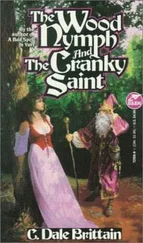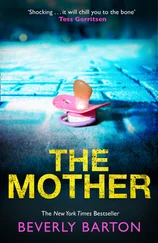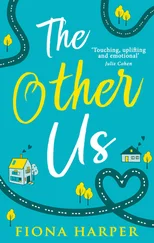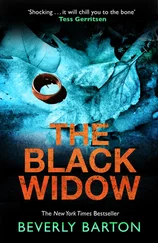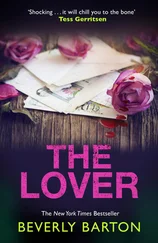Mostly, people seemed glad for us, but not all. One of my old clients from the salon said: “Hmm. But none of us are completely innocent, are we?”
I told her it had been lovely to see her but I had to get back to help Glen.
“It’ll mean going back to court,” I worked myself up to say to him one day. “Having everything dug up again and gone through. I’m not sure . . .”
Glen stood and held me. “I know it’s hard for you, love, but this will be my vindication. This will make sure people know what I went through. What we went through.”
I could see the sense in that and tried to be more helpful, remembering dates and terrible encounters with people in public to put in his evidence. “Remember that bloke at the cinema? He said he wouldn’t sit in the same room with a pedophile. Shouted it and pointed at you.”
Of course Glen remembered. We’d had to be escorted out of Screen 2 by security “for our own safety,” the manager said. The bloke kept shouting, “What about Bella?” and the woman with him was trying to make him sit down.
I’d wanted to say something, that my husband was innocent, but Glen gripped my arm and said, “Don’t, Jean. It’ll make it worse. He’s just some nutter.”
He didn’t like remembering this, but he wrote it down in his statement. “Thanks, love,” he said.
The police resisted the compensation claim—Tom said they have to because it is taxpayers’ money they have to pay out—until the very last minute. I was getting dressed in my court outfit when Glen, already in his good suit and shoes, got a call from Tom.
“It’s over, Jeanie,” he shouted up the stairs. “They’ve paid up. Quarter of a million.”
The papers and Dawn Elliott called it blood money, made on the back of her little girl. The reporters wrote horrible things about him again and they were back outside. I wanted to say “I told you so,” but what good would that do?
Glen went quiet again, and I packed in the job before they could let me go.
Back to where we started.
TWENTY-NINE
The Detective
MONDAY, JULY 21, 2008
After the trial collapsed, there was a different kind of sadness for Bob Sparkes. And anger. Most directed at himself. He’d allowed himself to be seduced into this disastrous strategy.
What had he been thinking? He’d heard one of the senior officers describe him as a “glory hunter” as he passed an open door on the top floor, and he’d cringed inside. He thought he’d been thinking of Bella, but perhaps it was all about him.
Anyway, it’s not glory I’m covered in, he told himself.
The report that finally emerged, five months after the end of the trial, was written in the sanitized language of such documents, concluding that the decision to use an undercover officer to obtain evidence against the suspect was “taken on the basis of expert opinion and extensive consultation with senior officers, but the strategy was ultimately flawed due to the lack of proper supervision of an inexperienced officer.”
“We screwed up” was the bottom line, Sparkes told Eileen on the phone after a terse meeting with his chief constable.
The next day, he was named and shamed along with his bosses in the papers as one of the “top cops” who had “wrecked” the Bella case. There were calls for “heads to roll” from politicians and columnists, and Sparkes kept his head down as the clichés were trotted out and tried to prepare himself for life after being a copper.
Eileen seemed almost pleased at the thought of him leaving the force, suggesting security work, something corporate. She means something clean , he thought. His kids were brilliant, ringing most days to urge him on and make him smile with bits of their news, but he couldn’t look much beyond the end of each day.
He started running again, remembering the release it had given him as a young father, letting the rhythm of his pounding feet fill his mind for at least an hour. But he returned home gray-faced and sweating, his fifty-year-old knees killing him. Eileen said he had to stop; it was making him ill. That and everything else.
In the end, his disciplinary hearing was a civilized affair, with questions posed politely but firmly. They already knew all the answers, but procedures had to be followed. He was put on paid leave while he waited for the outcome and took the call, still in his pajamas, from his union representative; the force had decided to place the blame higher up and he would have a reprimand on his record but he wouldn’t be sacked. He didn’t know whether to laugh or cry.
Eileen cried and hugged him hard. “Oh, Bob, it’s all over,” she said. “Thank God they saw sense.”
The next day he went back to work, assigned to different duties.
“A fresh start for us all,” DCI Chloe Wellington, newly promoted to fill the disgraced Brakespeare’s chair, told him as part of some sort of reeducation interview. “I know it is tempting, but leave Glen Taylor to someone else. You can’t go back to it, not after all this publicity. It would look like victimization, and any new lines would be tainted by that.”
And Sparkes nodded, talking convincingly about the new cases on his desk, budgets, rosters, and a bit of office gossip. But as he walked back to his office, Glen Taylor was top of his list; he was the only name on his list.
Matthews was waiting for him, and they closed the door to talk tactics.
“They’ll be watching us, boss, to make sure we don’t go anywhere near him. They’ve brought in a senior detective from Basingstoke to review and plan next steps for the Bella Elliott case—a woman, but a good bloke. Jude Downing. Do you know her?”
• • •
DI Jude Downing tapped on Sparkes’s door that afternoon and suggested a coffee. Slim and red-haired, she sat opposite him in a café down the road—“Cafeteria is a bit of a bear pit,” she said. “Let’s get a latte”—and waited.
“He’s still out there, Jude,” Sparkes said finally.
“What about Bella?”
“I don’t know, Jude. I’m haunted by her.”
“Does that mean she’s dead?” she asked, and he didn’t know how to answer. When he was thinking like a copper, he knew she was dead. But he could not let her go.
Dawn was still interviewed on slow news days, her childlike face staring accusingly out of the pages. He had continued to ring her every week or so. “No news, Dawn. Just checking in,” he would say. “How are things?” And she would tell him: She had met a man she liked through the Find Bella campaign and was managing to get through the days.
“There are three of us in this marriage,” Eileen said once, and laughed that dry, fake laugh she reserved for punishing him. He hadn’t risen to it, but he stopped mentioning the case at home and promised to finish painting their bedroom.
Jude Downing told him she was looking at every piece of evidence to see if anything had been missed. “We’ve all been there, Bob. You can get so close to a case like this, you can’t see clearly anymore. It’s not a criticism—just how it is.”
Sparkes stared into the froth on his coffee. They had dusted a chocolate heart on it. “You’re right, Jude. Fresh eyes needed, but I can help you.”
“Best if you step back for the moment, Bob. No offense, but we need to start from the beginning again and follow our own leads.”
“Okay. Thanks for the coffee. Better get back.”
Eileen listened patiently later as she poured him a beer and he vented his rage. “Let her get on with it, love. You are giving yourself an ulcer. Do the breathing exercises the doctor gave you.” He sipped and practiced the feeling of letting things go, but it just felt like letting things slip away from him.
Читать дальше

